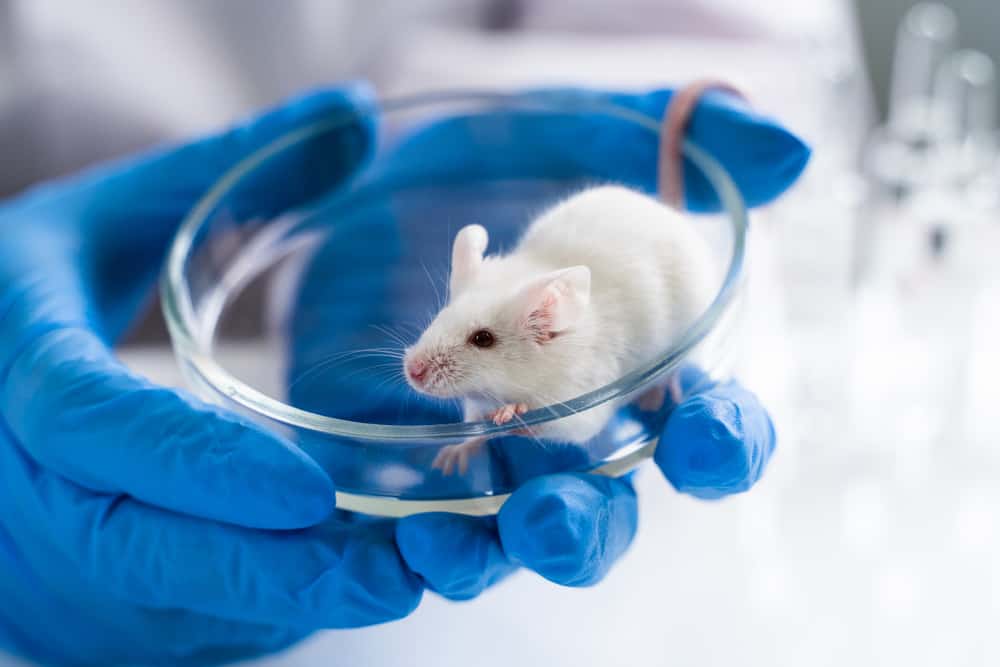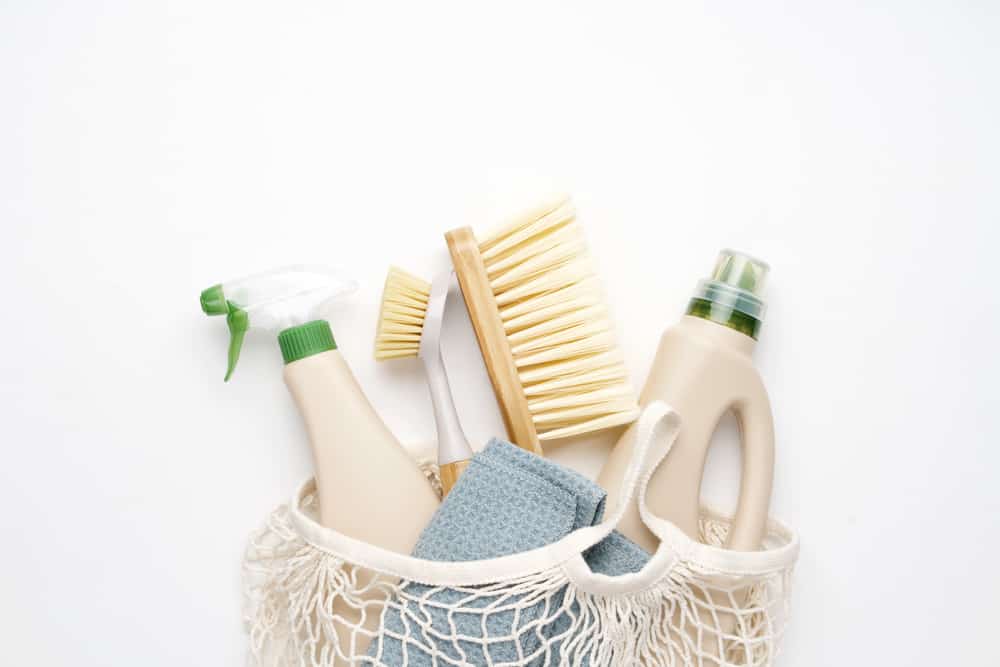No company that wants to make money would intentionally sell a product that harms or kills a person. A company might go bankrupt if an accident or death occurred due to insufficient product testing. Before putting products on the market, certain companies choose to test their products on animals to ensure their safety – but is it necessary?
Companies use animal testing to research the effects their household cleaning products have before being sold to consumers to ensure their safety. Despite a growing trend towards awareness and cruelty-free choices, many common brands and products continue to rely on animal testing.
Testing for safety is a priority for companies. But the suffering this puts animals through has caused many people to seek products that use alternative testing methods.
For this reason, companies don’t like to publicize their use of animal testing today. This article looks at which companies continue to use animal testing and which ones don’t.
Animal-Tested Cleaning Products
Several companies do not use animal testing, and many cruelty-free products are available at large retailers. However, it is more common to find cleaning products that use animal testing before being sold in stores.
What Do Companies Test For?
Knowing what companies use animals to test for is also helpful in identifying animal-tested cleaning products. Once you know what type of tests companies run on animals, you can begin to get an idea of what kinds of products require these tests.
Product testing is essential before a cleaning product is put on the shelves for sale. Consumers should not be poisoned from accidentally ingesting cleaning chemicals, either by inhalation or consumption. Companies use research facilities to test the effects of chemicals. This is one of the main reasons why animal testing started to begin with.
Certain researchers use animals testing to test aspects such as:
Types of Animal Tested Cleaning Products
Knowing what they test for is often not enough to guess what products use animal testing. Animal testing is used on several household cleaning products. Companies want to be sure that any product used in your home is not harmful to living systems. Here are some types of products that generally use animal testing.
Household Brands that Use Animal Testing
Even though animal testing is relatively widespread, companies typically do not advertise their use of animal testing. You may be surprised to learn which common brands use animal testing.
It is not always easy to discover what brands are using animal testing. Confusing product labels make it difficult to know if a company conducts animal tests. Even companies that label their products free of animal testing may still have products that use ingredients tested on animals before being incorporated into the product.
Some well-known brands and products that use animal testing are:
Cruelty-Free Brands Owned by Animal Testing Parent Companies
To make it trickier to find products that do not animal test, large corporations that own several product lines can have one product independently operate and not animal test.
One example is Unilever, which owns Seventh Generation. This company does not use animal testing, but other products from Unilever do. Seventh Generation asserts that it has never conducted or commissioned any animal testing for its products or ingredients. It does not believe any animal should be harmed to make good products.
Here are some more brands that themselves are cruelty-free but whose parent companies still test on animals.
Please know that these brands are still cruelty-free. Brands like Mrs. Meyers and Seventh Generation do not test on animals! This list shows brands owned by larger corporations that use animal testing for some of their other products.
This does not necessarily mean you should not buy from these brands if you want to be cruelty-free, but you should know that part of your purchase will be going to a corporation that allows animal testing. It is up to you to know all the facts and make an informed decision.
Animals Used in Research and Testing for Cleaning Products
Mice and rats are the most common animals used for research and testing in laboratories. Comprising ninety percent of laboratory animals, rats and mice are not counted in USDA statistics and are not covered by the AWA.
Statistics on the number of animals tested are not complete or comprehensive. Still, the closest estimates show 25 million vertebrate animals are used in U.S. laboratories for research and testing each year. Other animals used for research include:
All of the above-listed animals are used in testing cleaning products and are not covered by the AWA. Birds bred for research are covered by the AWA, but standards have not been created.
Europe seems to be moving in a positive direction. Not only did the EU ban all animal testing for cosmetics in 2013, but in 2015 the UK banned all forms of animal testing for household cleaning products too.
If you want to know exactly which countries have banned animal testing (and if you are in the clear), here’s something you need to read: These Countries Have Banned Animal Testing (2021)
Household Products Not Animal Tested
If a product is labeled “green” or “environmentally friendly,” it does not always signify that no animal testing was used. Even the popular “Method” brand of products, which touted itself as a cruelty-free brand for years, is now using the daphnia, a type of water flea, in its testing.
It is important to note that some would not deem an invertebrate (animal without a backbone), like the daphnia, in the same category as vertebrates like rabbits and mice when discussing the ethical issues around animal testing. A lot has to do with the sentience of the animal.
Cruelty-free products are those that do not use animal testing in their research and development – they use alternative methods.
Cruelty-free does not mean these products are vegan. Some cruelty-free cleaning products may have animal byproducts in them, such as cow fat. You can also read this article to get more information on the differences between cruelty-free and vegan - Are Cruelty-Free Products Vegan?
The Coalition designed an effective program for Consumer Information on Cosmetics (CCIC). Their program sets international standards for businesses that want to be recognized as cruelty-free. They have an online tool you can use to find suppliers working with the CCIC and have the Leaping Bunny designation leapingbunny.org.
People for the Ethical Treatment of Animals (PETA) also has a bunny logo designed to indicate cruelty-free. This logo is tied to the Beauty Without Bunnies program. This program includes household cleaning products and sets similar standards as the CCIC.
Many cruelty-free cleaning products are available online, including:
Conclusion
Animal testing is commonly used in the research and development of cleaning products. However, the popularity of animal testing is waning. Economic pressure, increasing regulations, and ethical concerns are pushing companies away from this practice. Now, consumers can find several companies offering cruelty-free cleaning products.
Accidents do happen, so it is vital to make sure your cleaning products are safe for you and your home. Many people are opposed to using animals in product development; however, inhalation of toxic fumes, skin burns, house fires, or long-term illness may occur if cleaning products are not adequately tested.
Manufacturing and offering consumers products that do not involve testing may help improve a company’s sales, but it will take time before animal testing is eliminated. Scientists have not yet developed a reliable way to study the effects of cleaning products on the entire human body system other than using animals.


